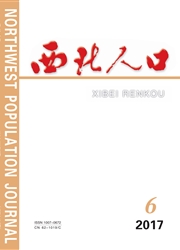

 中文摘要:
中文摘要:
随着我国经济社会的快速发展,目前农村留守妇女大多已摆脱物质生活贫困,但其文化生活依旧贫乏单调,亟待进行社会干预、引导和开发。“优势视角”理论重点关注人的内在力量和优势资源,尤其适合运用于妇女社会工作。笔者在农村留守妇女文化生活的社会工作介入中运用的实践模式的特征包括:以优势视角理论为指导、发现和评估个人层面的资源和优势、通过互助组织建构双向社会支持网络以提供内源性支撑、协调社会环境中已有或待开发的优势以提供外源性支撑。基于社工服务实践的经验可以得出启示,优势视角下留守妇女文化生活的社会工作应当重点关注案主的资源和优势、兼顾问题的挑战性和机遇性、强调案主的自助与互助、挖掘环境中蕴含的待开发优势、注重人文关怀和照顾。
 英文摘要:
英文摘要:
Along with the rapid development of China’s economic and society,most of the rural left-behind women have get rid of the material poverty. However their cultural life is still weak and tedious,then the social intervention,guidance and de-velopment assistance are eagerly needed for them. Strength perspective theory focuses on people ’s inner strength and advan-tage resources,so it’s especially suitable for women’s social work. The characteristics of the author’s social work intervention practices for left-behind women’s cultural life are summarized as follows: taking the Strength Perspective Theory as the guideline;detection and evaluation of clients’ individual resources and strengths; establishment of two-way social support network through self-help groups to provide endogenous support;and coordination of the existing and potential social resources to provide exogenous support. The lessons learned from these social work practices include:paying priority attention to clients’ resources and strengths,consideration to both the challenges and opportunities,emphasizing of clients’ self-help and mutual assistance,exploring and developing the potential advantages,and emphasis of humanistic concerns and care.
 同期刊论文项目
同期刊论文项目
 同项目期刊论文
同项目期刊论文
 期刊信息
期刊信息
